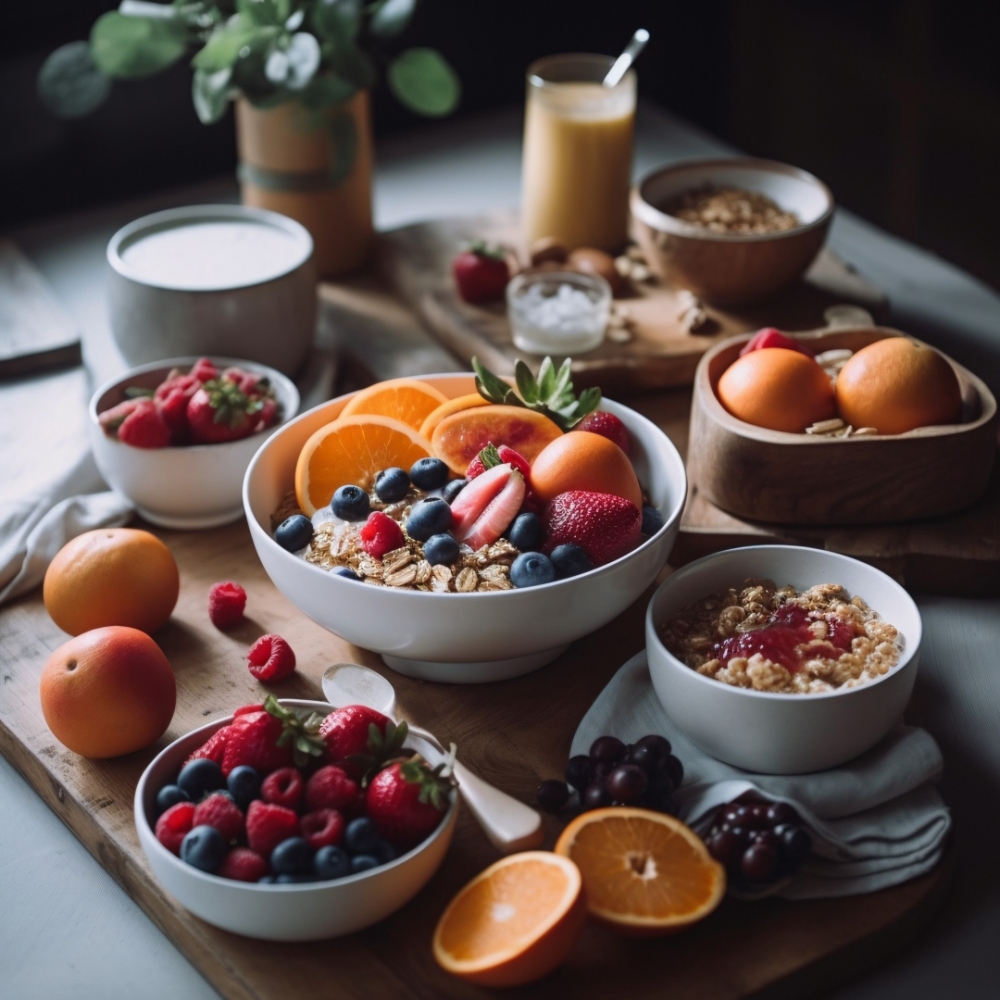The term "breakfast" refers to the first meal of the morning, i.e. the meal following the night fast.
By many, it is actually not even considered a real meal: some people get up at the last minute, drink a quick coffee and leave the house without eating anything.
The importance of a good breakfast is determined by the fact that it has the task of providing us with the energy to start our daily activities moreover, it seems to be correlated with better metabolic parameters, in particular those related to cardiovascular risk, and greater glucose tolerance, for these reasons it needs to be balanced and complete, like the other meals of the day.
Therefore, carbohydrates, proteins and fats should be present, possibly accompanied by fibres, vitamins and salts, while breakfasts based on simple sugars (and fats), such as the cappuccino and croissant mentioned above, or tea and biscuits are usually preferred.
The problem with these types of breakfasts is that they cause our insulin level, the hormone responsible for lowering blood sugar concentration, to rise too suddenly, which then drops just as quickly a few hours later, causing the typical 'pit in the stomach' feeling in the middle of the morning, making us want to eat more snacks.
So how can we compose our breakfast so that this does not happen?
First we must choose a source of carbohydrates, for example bread, rusk, oatmeal or cereal. Fruit, whether cut into small pieces or in the form of juice or jam, is also part of carbohydrates, also providing water, fibre, vitamins and minerals. Especially in the case of cereals, juices and jams, always pay attention to the labels, checking both the list of ingredients and the heading 'carbohydrates, of which sugars'. It is indeed important that the products do not contain added sugars such as honey, glucose/fructose syrup, sucrose and that the sugar value expressed in grams is not too high.
Continuing with the composition of the ideal breakfast, it is necessary to introduce a source of protein, which we can find in milk, yoghurt, kefir, but also in cottage cheese, eggs, cooked/cured ham or smoked salmon.
Protein will allow us to feel full for longer and sustain our energy levels during the day. Finally, it is recommended to include a source of 'good' fats in this first meal, including dried fruit or dried fruit creams (preferably 100%), avocado, coconut or dark chocolate.
coconut or dark chocolate. Remember, however, to dose them in moderation as they are high in calories!
Let's take a few practical examples with regard to combinations:
- rusk with cottage cheese and jam and a handful of dried fruit
- oatmeal with yoghurt and a piece of fruit
- bread with dried fruit spread and a squeeze of orange juice
For those who prefer a savoury breakfast
- toast with avocado and soft-boiled egg
- Toast with ham and cheese
- Rye bread with smoked salmon
Don't forget to drink a glass of water as soon as you get up, together with a tea, herbal tea or a
juice to ensure a good fluid intake from the start of the day.
Then, choose the breakfast you prefer, according to your needs, assessing
the overall nutritional balance of the whole day, and, above all, take the time to enjoy it at your leisure.
necessary to enjoy it calmly, nourishing both body and mind.
(Article by Dr Giulia Daniotti)





